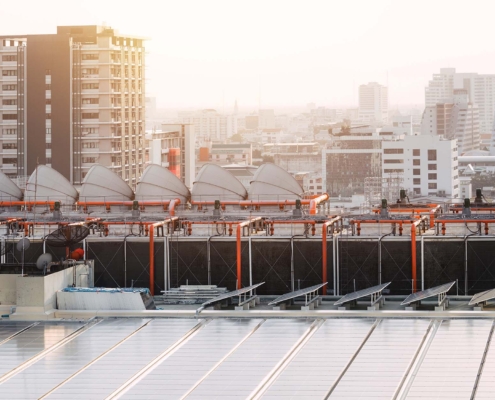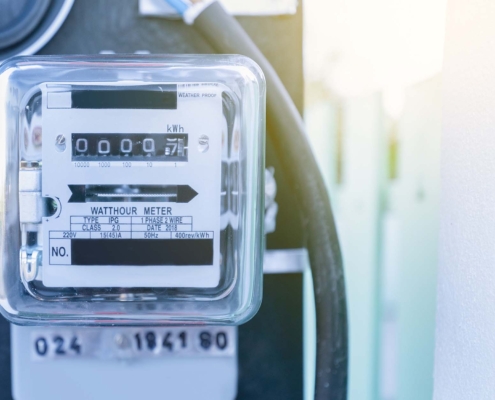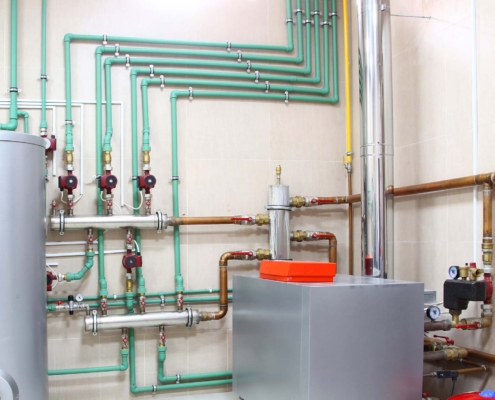 https://www.aircomfort.com/wp-content/uploads/2022/10/What-Is-IECC-and-How-Does-It-Affect-Your-Business__.jpg
1250
2000
Ike Oji
/wp-content/uploads/2021/08/AC_Logo_FIN_-wTag.png
Ike Oji2022-10-31 09:00:002023-04-27 15:24:16What is the IECC?
https://www.aircomfort.com/wp-content/uploads/2022/10/What-Is-IECC-and-How-Does-It-Affect-Your-Business__.jpg
1250
2000
Ike Oji
/wp-content/uploads/2021/08/AC_Logo_FIN_-wTag.png
Ike Oji2022-10-31 09:00:002023-04-27 15:24:16What is the IECC?What Does the HVAC Energy Audit Process Look Like?
Spring is a great time of year for HVAC maintenance. Why? Well, the weather is warming up, but it’s not too hot and humid yet, and all the harsh winter weather has faded away. During this time, you should contact your HVAC provider for an energy audit to make sure your system still operates efficiently. Let’s answer some questions about what you should expect to see when your provider performs an HVAC audit.
What Does an HVAC System Audit Measure?
An energy audit for your HVAC system examines and measures how your system currently performs. It also shows you how to boost your system’s energy efficiency. After you have an audit performed, your provider can examine the results with you and determine how to make your HVAC system more energy efficient. They can help you take measures to improve your system’s performance while lowering your energy costs.
Energy Audit Types
While the term “energy audit” may sound technical but vague to many people, technicians in the HVAC industry understand that it’s a technical term carefully defined by the professional organization ASHRAE. ASHRAE defines and outlines three different types of HVAC energy audits:
- Level 1: This is the most basic audit level. During a Level 1 audit, your energy auditor performs a high-level walkthrough of your building to collect data about your building systems’ operations. They also review your recent utility bills and interview your building’s operations personnel. The auditor uses these three major steps to identify any major problems in your HVAC system’s operations.
- Level 2: This level is a more in-depth version of a Level 1 audit. Your auditor makes more complicated calculations to determine where you can improve your building’s energy efficiency during this type of audit. They also interview important building personnel so they can gain perspective into the building’s overall operations and energy usage. Then they make a list of potential improvements and changes. If a Level 1 audit is about examining an HVAC system’s current performance, then a Level 2 audit is about improving that performance for sustainability’s sake.
- Level 3: This is the most complex type of audit. It builds on Levels 1 and 2, so your energy auditor collects more data and provides an in-depth engineering analysis of what Level 2’s potential improvements and changes would look like if you implemented them in your building’s HVAC system. This type of energy efficiency audit includes mapping out your energy system’s possible future as well as examining its current performance.
An energy audit for your HVAC system examines and measures how your system currently performs. It also shows you how to boost your system’s energy efficiency.
Why Should You Schedule an HVAC Energy Audit?
After reading those definitions, you may think an energy audit sounds complicated, and it is. So why should you schedule one? Well, energy audits work as a form of preventative maintenance. That means that having an auditor examine your HVAC system as a form of routine maintenance will save your system from developing major problems in the future. For example, when your auditor shows up with an HVAC system audit checklist, they can use their inspection checklist to check for common problems, such as air leaks. They can also determine how good or bad your building’s air quality is, so you know whether your HVAC system creates a healthy work environment. In the long run, a basic Level 1 audit can help your system’s components run well and extend your system’s lifespan.
Additionally, you should have a Level 2 or 3 audit performed if you want to improve your building’s energy efficiency and its overall sustainability. These higher level audits help you understand which improvements you should complete to make your HVAC system more energy efficient and what those changes might look like. Then you can go forward knowing which alterations will improve your system’s performance and lower your energy costs.
Schedule Your Energy Audit With Air Comfort
If you want to know how HVAC energy efficiency improves your building’s sustainability, or if you just want to know how it currently performs, reach out to Air Comfort today. We can perform the energy audit you need to improve your HVAC system’s performance and lower your energy bills.
Related Postings
 https://www.aircomfort.com/wp-content/uploads/2022/10/What-Is-IECC-and-How-Does-It-Affect-Your-Business__.jpg
1250
2000
Ike Oji
/wp-content/uploads/2021/08/AC_Logo_FIN_-wTag.png
Ike Oji2022-10-31 09:00:002023-04-27 15:24:16What is the IECC?
https://www.aircomfort.com/wp-content/uploads/2022/10/What-Is-IECC-and-How-Does-It-Affect-Your-Business__.jpg
1250
2000
Ike Oji
/wp-content/uploads/2021/08/AC_Logo_FIN_-wTag.png
Ike Oji2022-10-31 09:00:002023-04-27 15:24:16What is the IECC? https://www.aircomfort.com/wp-content/uploads/2022/09/Electrical-equipment.energy-meter-is-a-device-that-measures-the-amount-of-electric-energy-consumed-by-a-residence.jpg
1250
2000
Valeriia Mamleeva
/wp-content/uploads/2021/08/AC_Logo_FIN_-wTag.png
Valeriia Mamleeva2022-09-22 09:00:052023-04-27 15:24:16How To Reduce Energy Use in Commercial Buildings
https://www.aircomfort.com/wp-content/uploads/2022/09/Electrical-equipment.energy-meter-is-a-device-that-measures-the-amount-of-electric-energy-consumed-by-a-residence.jpg
1250
2000
Valeriia Mamleeva
/wp-content/uploads/2021/08/AC_Logo_FIN_-wTag.png
Valeriia Mamleeva2022-09-22 09:00:052023-04-27 15:24:16How To Reduce Energy Use in Commercial Buildings https://www.aircomfort.com/wp-content/uploads/2022/09/boiler-room_.jpg
1250
2000
Valeriia Mamleeva
/wp-content/uploads/2021/08/AC_Logo_FIN_-wTag.png
Valeriia Mamleeva2022-09-15 09:00:372023-04-27 15:24:16How To Identify Common Boiler Problems
https://www.aircomfort.com/wp-content/uploads/2022/09/boiler-room_.jpg
1250
2000
Valeriia Mamleeva
/wp-content/uploads/2021/08/AC_Logo_FIN_-wTag.png
Valeriia Mamleeva2022-09-15 09:00:372023-04-27 15:24:16How To Identify Common Boiler Problems

About
Air Comfort’s mission is to work closely with customers to provide a true “comfort level” for their businesses, with uninterrupted performance and round-the-clock reliability.


